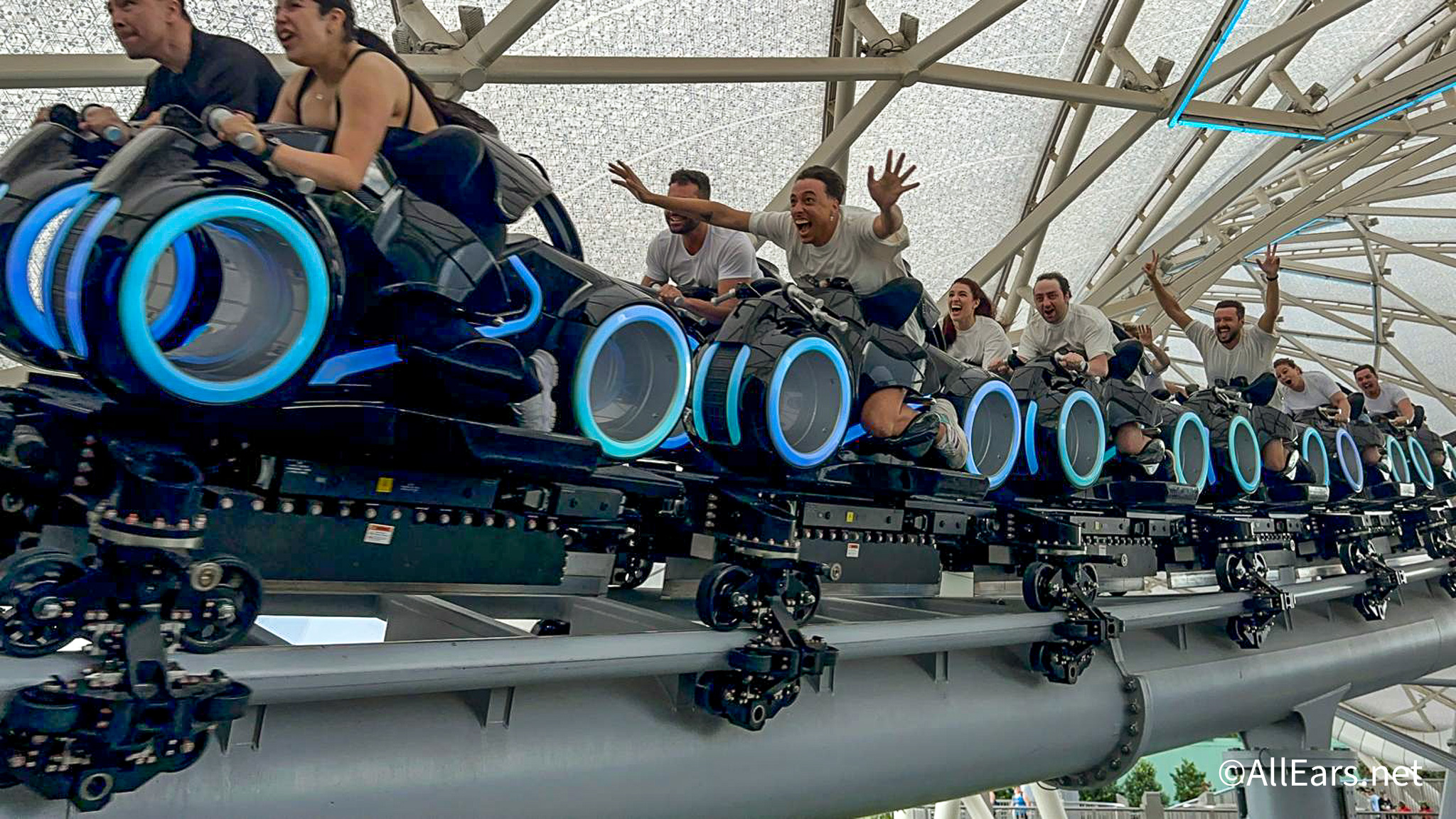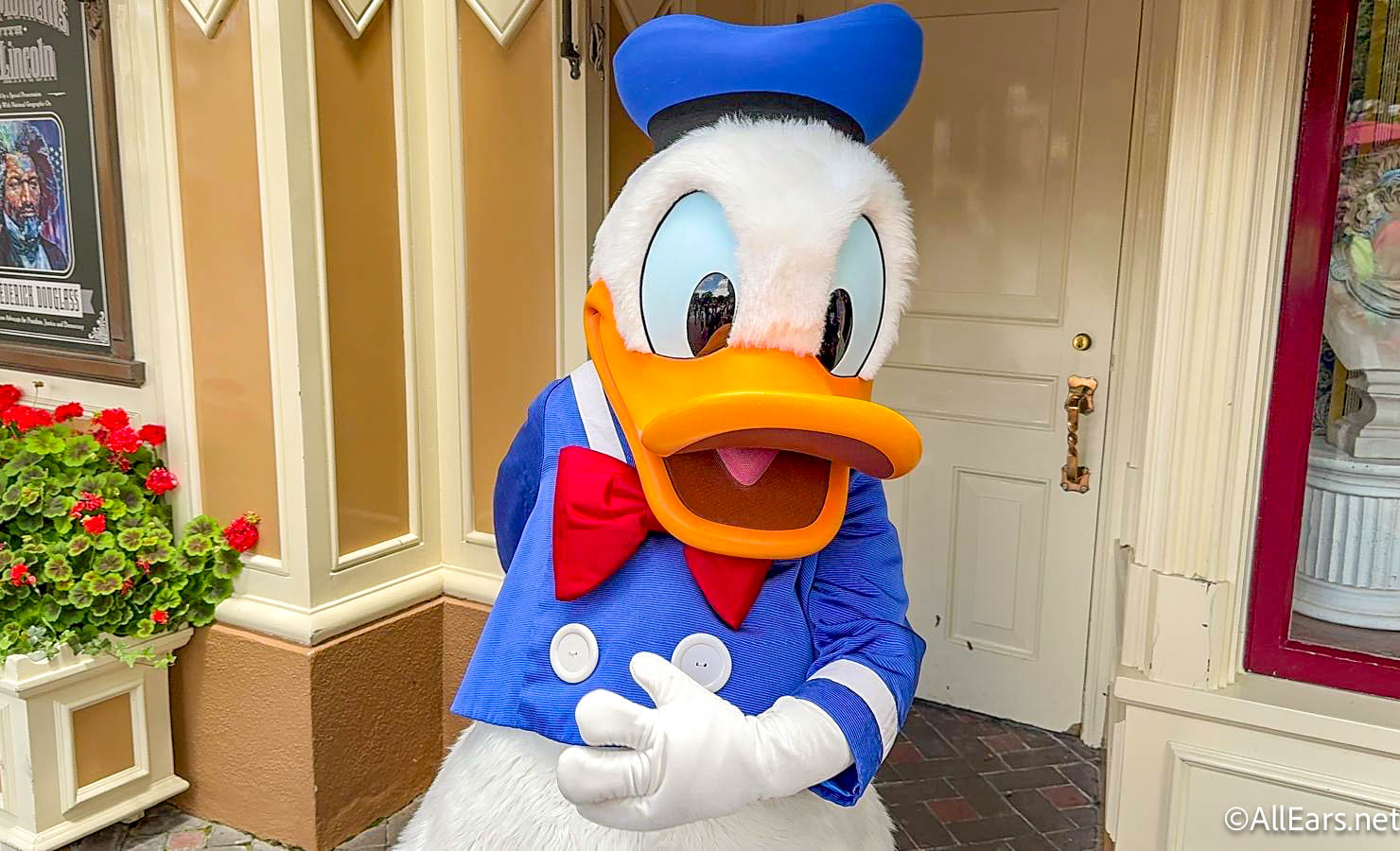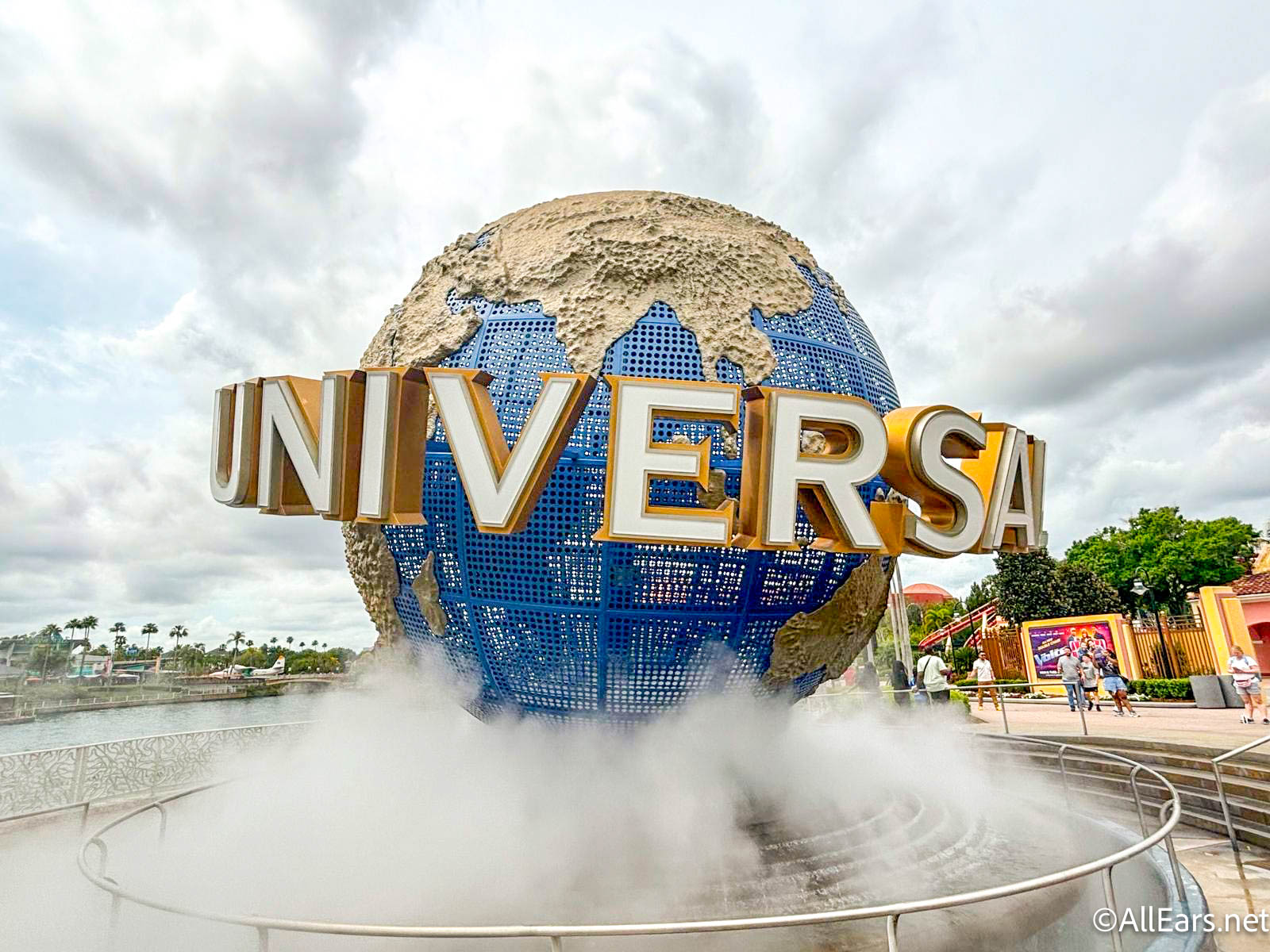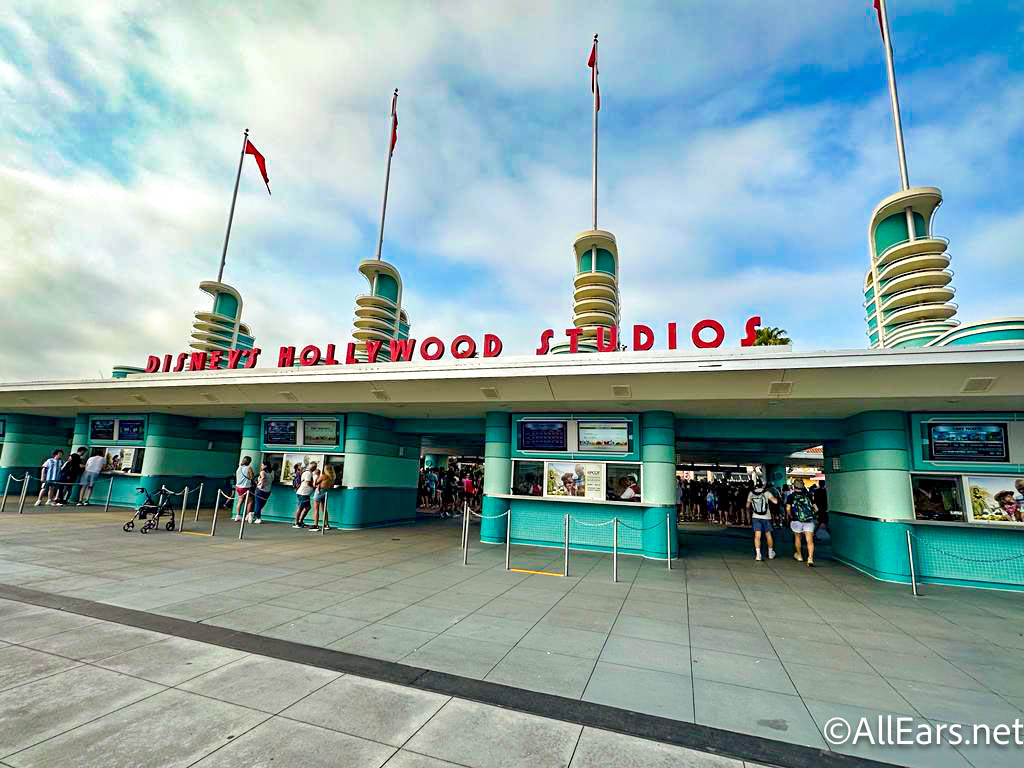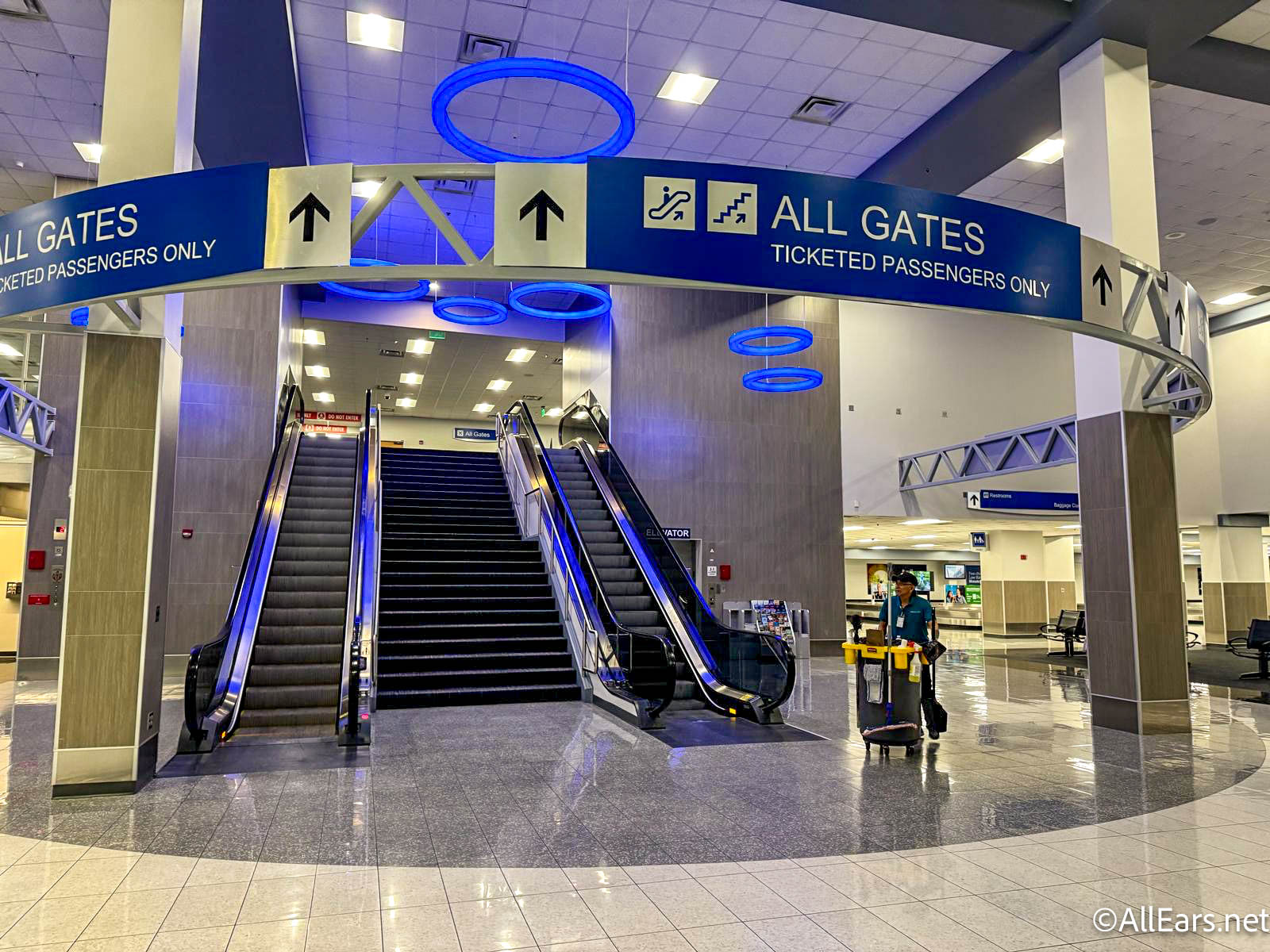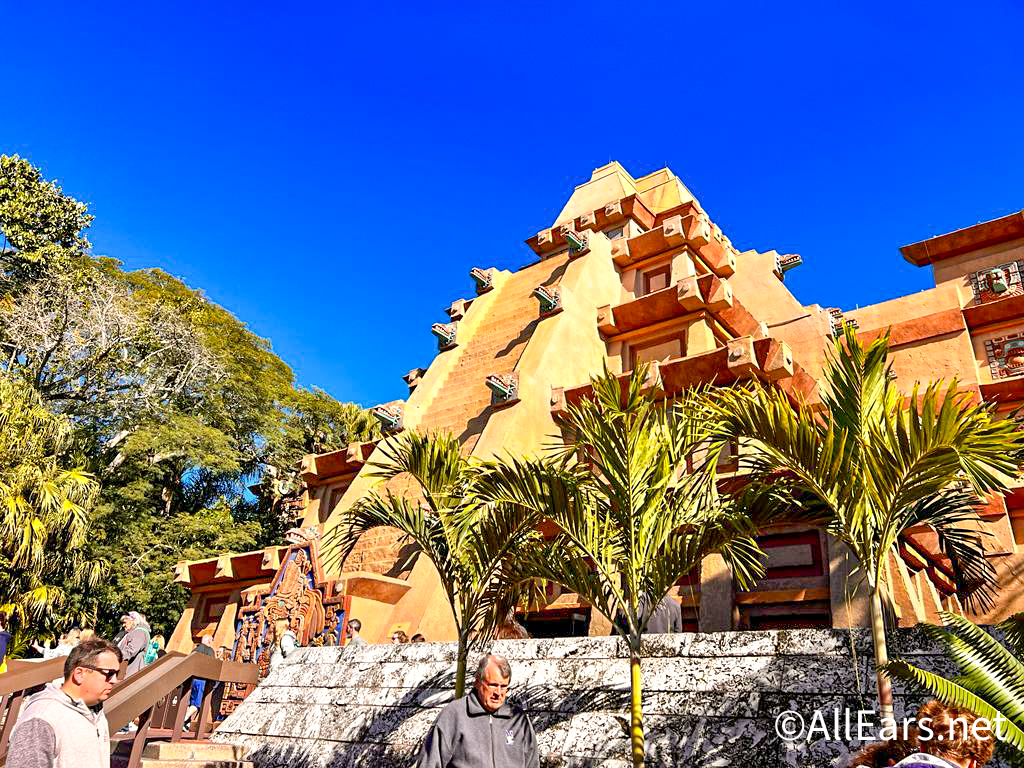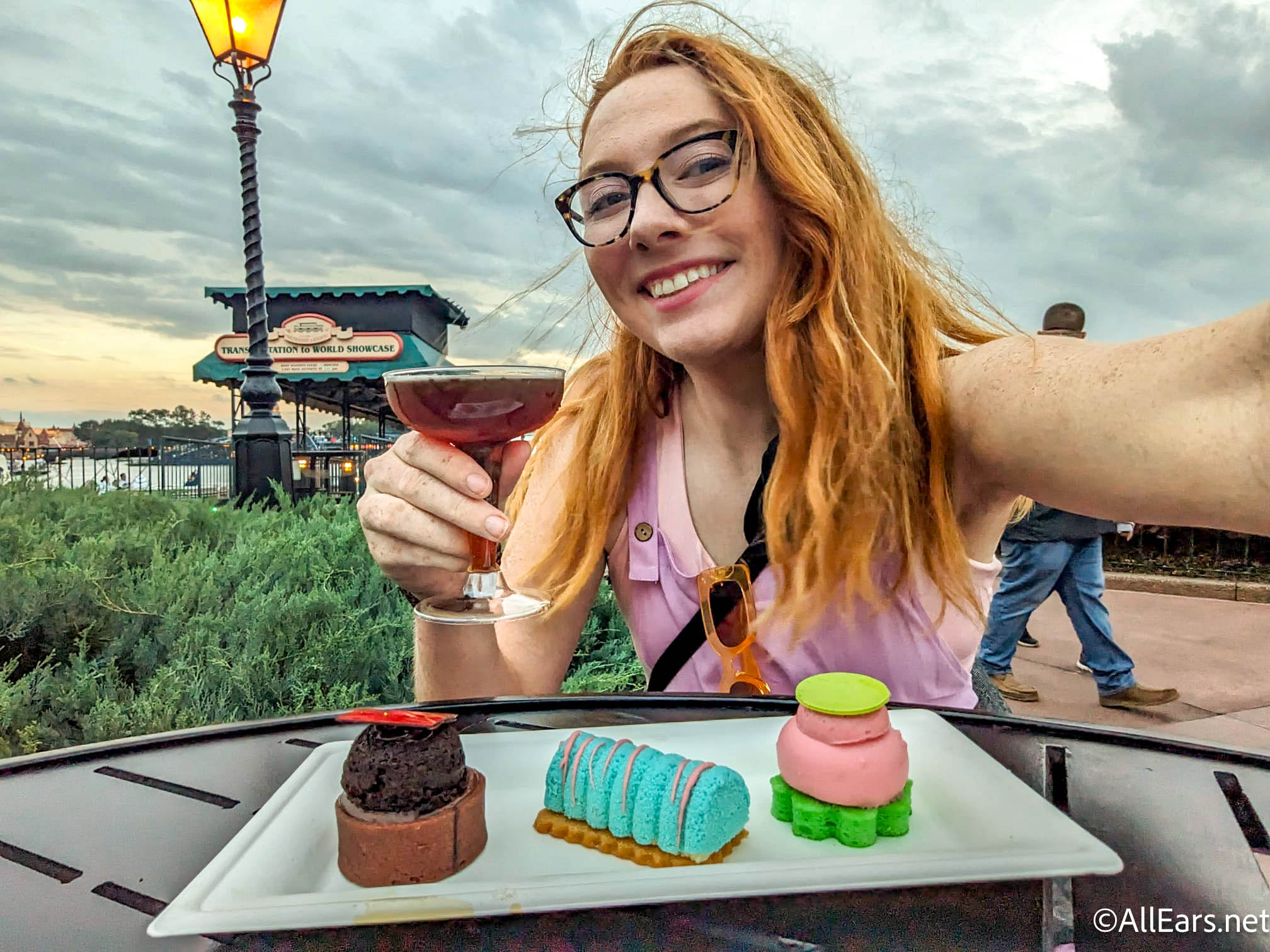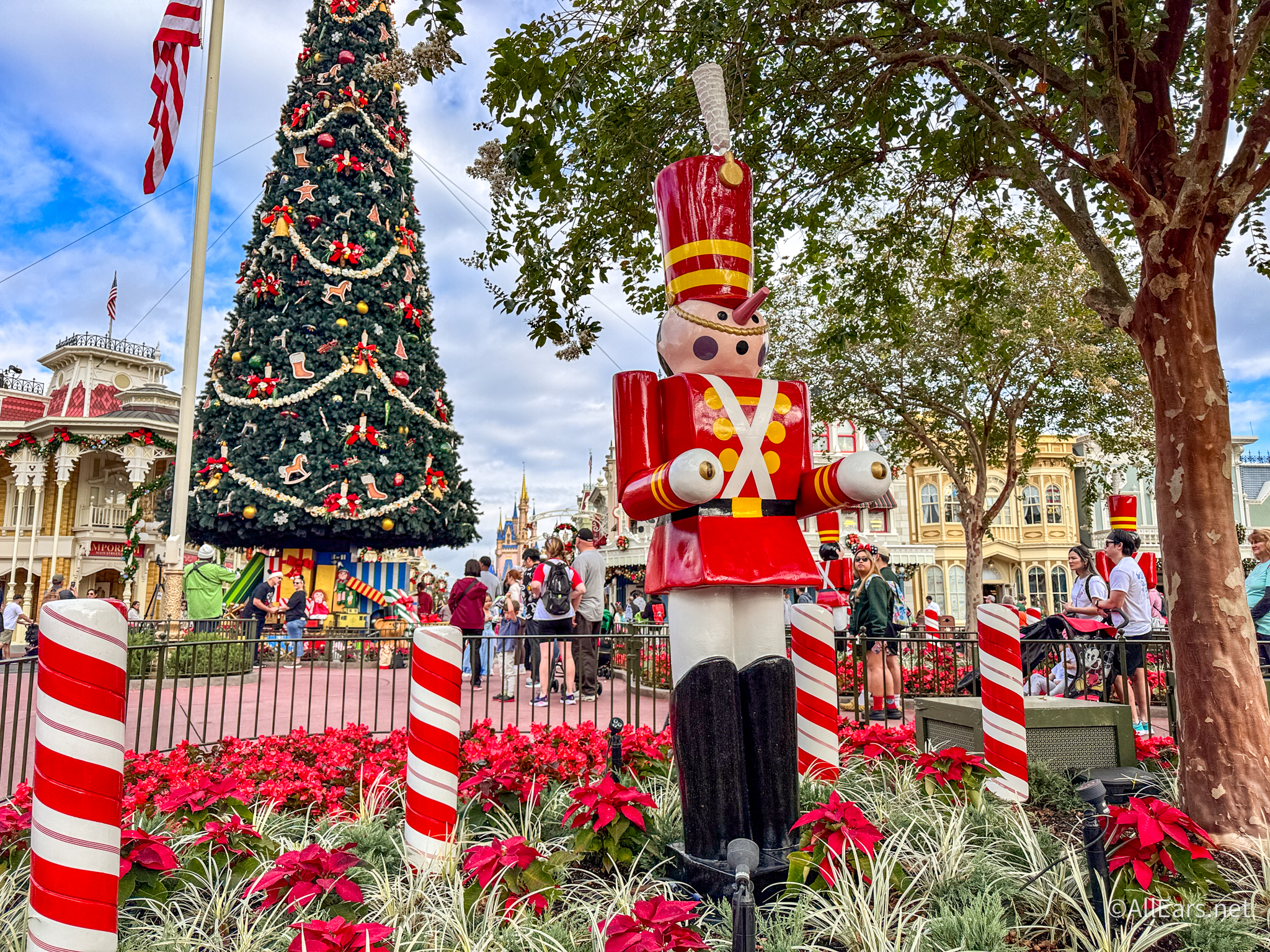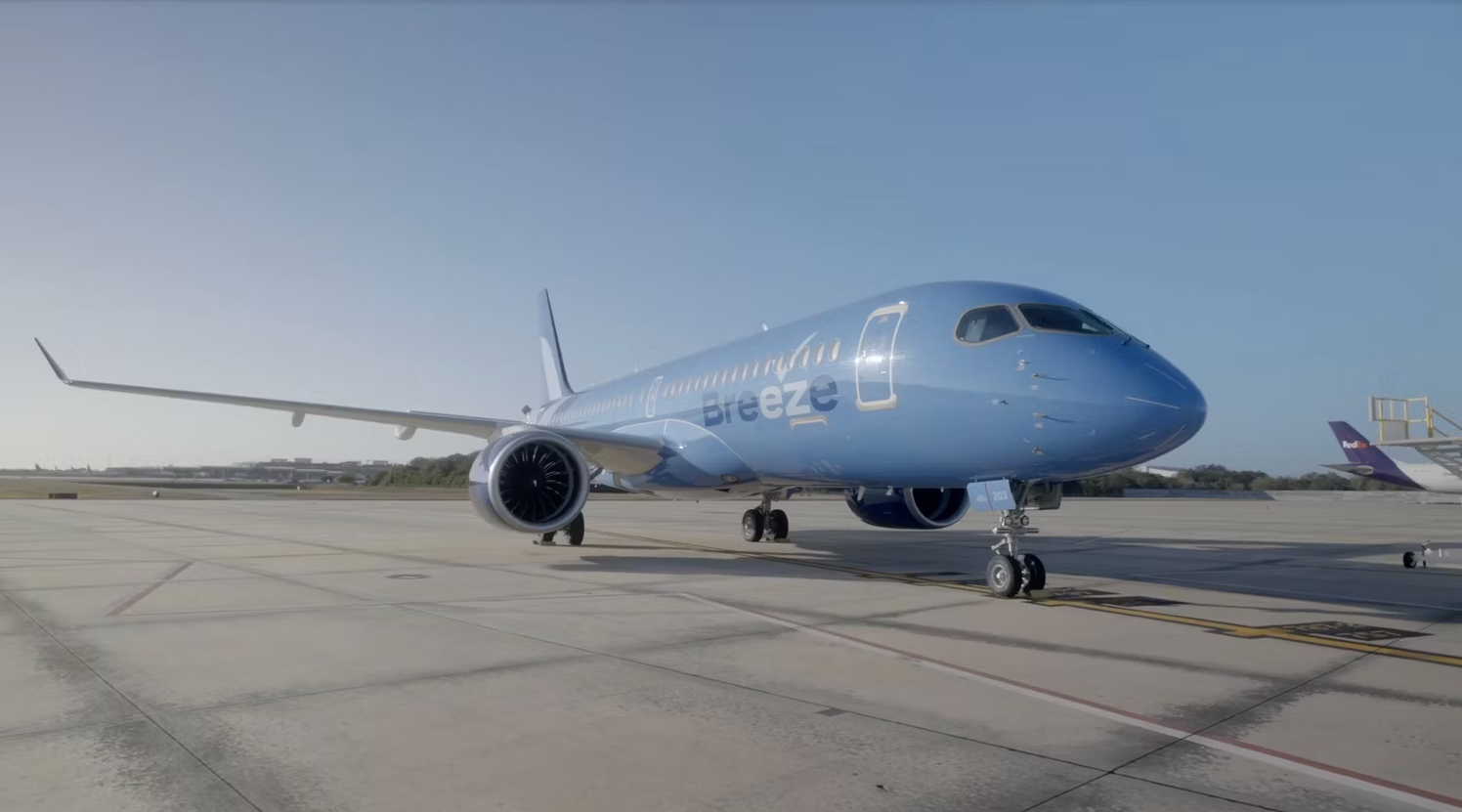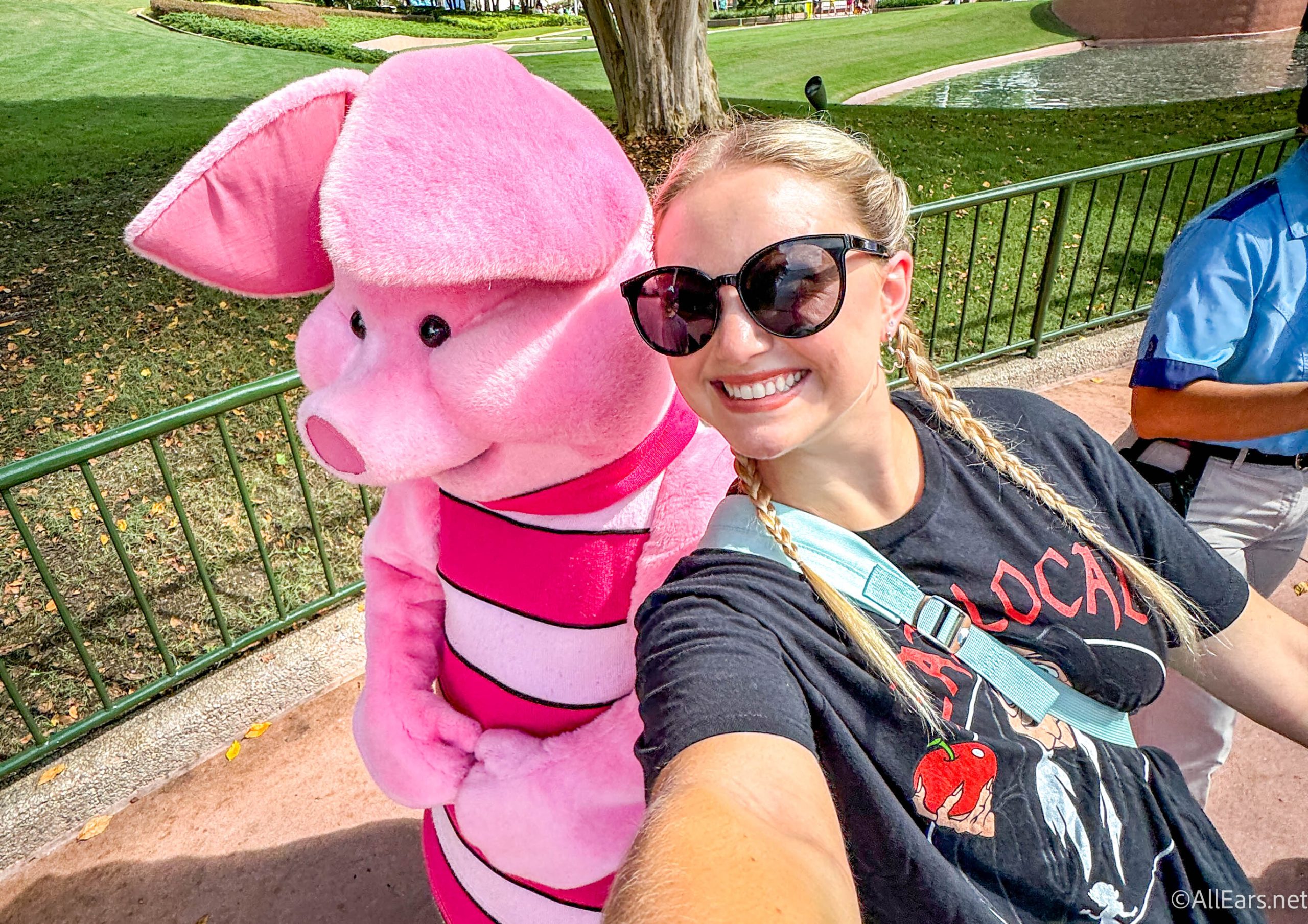Making Music: The Sherman Brothers
by
Joan Feder
Feature Article
This article appeared in the April 14, 2020 (#1074) edition of ALL EARS®
Editor’s Note: This story/information was accurate when it was published. Please be sure to confirm all current rates, information and other details before planning your trip.
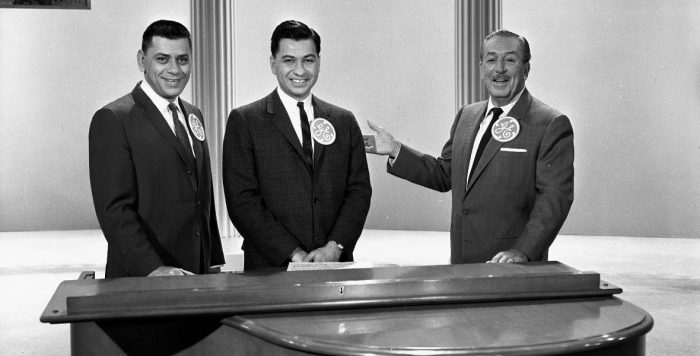
Robert and Richard Sherman wrote music together for more than sixty years. They composed more film scores than any other song writing team in history. You may not know their names, but you certainly know their music. Together, they are responsible for dozens of iconic songs including “Supercalifragilisticexpialidocious” and “The Tiki Tiki Tiki Room.”
The Sherman Brothers were both born in New York City. Robert was three years older and born on December 19, 1925. Richard came along on June 12, 1928. Their parents were Russian Jewish immigrants. Their father, Al Sherman, was a Tin Pan Alley composer who wrote many famous songs during the Great Depression.
After several moves, the family settled down in Beverly Hills, California. Both brothers were musically inclined. Robert played the violin and piano. Richard played several instruments as well. In 1946, he performed on the flute while his classmate, André Previn, played the piano at their high school graduation.
Robert joined the Army in 1943. He was a decorated war hero and led the first squad that liberated the Dachau concentration camp. Robert was wounded in 1945, which caused him to walk with a cane for the rest of his life.
Drafted in 1953, Richard also served in the Army for several years. He was a musical conductor for both the Army Band and glee club until his honorable discharge in 1955.
Both brothers attended Bard College in upstate New York. Robert majored in painting and English literature. He was editor-in-chief of the campus newspaper. Richard majored in music and concentrated on writing sonatas.
They were living together in an apartment in West L.A. which was being paid for by their parents. Despite working on various independent projects, neither had achieved any type of success. According to Richard, it was their father, the composer, who threw down the gauntlet. He challenged them to combine their talents and earn some money by writing a popular song.
So, in 1951, the Sherman Brothers started writing songs together. They had a hint of success right off the bat. Their first song, “Gold Can Buy You Anything But Love” was recorded by singing cowboy Gene Autry, who played it on his radio show daily. But it took several more years before they hit it big.
In 1958, the Shermans’ song “Tall Paul” was recorded by Mouseketeer Annette Funicello. It was their first top ten hit. Their next big record was “You’re Sixteen” which Johnny Burnette made famous in 1960, (you may be more familiar with Ringo Starr’s 1973 chart topping version).
But it was the brothers’ continued success writing for Annette that led to their best destiny. They wrote 35 songs for her over seven years, and that is what brought them to the attention of Walt Disney.
Walt needed someone to write a song for Annette to sing in a television movie called “The Horsemasters.” He liked the hits the brothers had written for her and asked to meet them. The Shermans were thrilled to be offered the opportunity. They wrote a song about a girl learning to ride a horse and went to play it for Walt Disney.
At that first meeting, Walt asked them to write songs for a different film as well. He told them the story of twin sisters who meet at summer camp. As a result, they wrote the music for “The Parent Trap” including the top ten hit “Let’s Get Together.”
It was one of the Shermans’ next assignments, however, that changed their lives. The brothers’ input for “Mary Poppins” cemented their relationship with Walt Disney. They not only wrote the music; they were also involved in developing the story for the film. The original books were set in the mid-1930s. It was the Shermans’ idea to change the time frame to 1910. They also helped choose which of the original stories would be part of the film.
“Mary Poppins” was, of course, a smash. The film was nominated for 13 Academy Awards, including Best Picture. It won five Oscars; two for the Sherman Brothers, one for Best Score, and one for Best Song, “Chim Chim Cher-ee.” It also contained Walt’s personal favorite, “Feed the Birds.” He loved it so much that most Friday afternoons at the Studio ended with the Shermans performing it for him on the piano in his office.
From 1960, until Walt’s death in 1966, the Shermans worked exclusively for Walt as his staff composers. Over the years, they wrote more than 200 songs for Disney’s movies, television shows and theme parks.
They composed music for 36 of Disney’s feature films overall. The first song that the brothers contributed to a Disney movie was the “Medfield Fight Song” for 1961’s “The Absent-Minded Professor.” Other pictures included the “Jungle Book”, “The Aristocats,” and “Bedknobs and Broomsticks.” They also wrote the music for the Winnie the Pooh featurettes, and Disney TV shows including “Zorro” and the theme for “The Wonderful World of Color.”
The Shermans’ work can be heard throughout Disney’s theme parks as well. Besides the Tiki Room song, they wrote “One Little Spark” for Figment and “Makin’ Memories” for Magic Journeys at Epcot. They also composed the themes for the Carousel of Progress: “There’s a Great Big, Beautiful Tomorrow” and “The Best Time Of Your Life.” Tokyo Disneyland has its own unique Sherman song, “We Meet the World with Love.”
One of the Shermans most well-known (and sometimes maligned) songs is “It’s a Small World.” It was initially written for the1964 New York World’s Fair. According to the brothers, this was their most difficult assignment for Disney.
The working title for the attraction was Children of the World. The soundtrack consisted of kids from around the globe singing their national anthems all at the same time. It created a horrible noise! Walt asked the Shermans to come up with something that could be sung in every language, and still sound harmonious as guests rode through the attraction.
This assignment was complicated by the fact that there was not a lot of time to do it. After trying several approaches, the Shermans decided to stick with a simple version entitled “It’s a Small World”. They played it for Walt, and anxiously waited for his response. What did Walt say? “That’ll work.” According to Richard Sherman, “…that’s the nicest thing that Walt Disney ever said about anything (laughs). That was his way of complimenting you.”
The Shermans film work extended beyond their assignments for Disney. For their first non-Disney job, they composed the music for “Chitty Chitty Bang Bang,” which earned them another Oscar nomination. Their modern take on Cinderella, “The Slipper and the Rose” was shown to Queen Elizabeth II, as the Royal Command Performance in 1976. Their work on other animated films included “Charlotte’s Web” starring Debbie Reynolds, and “Snoopy Come Home” for Charles Schulz.
Richard and Robert also wrote for the theater, including the Tony nominated Broadway show “Over Here!” and the stage musical “Busker Alley.” “Chitty Chitty Bang Bang” was adapted for the stage and included six new songs by the Shermans. “Mary Poppins” was turned into a stage show as well. Both plays were big successes and performed around the world for many years.
In addition to their two Oscars, the Shermans earned many other awards and accolades. Besides several Academy Award nominations, they won three Grammys. They also earned 24 platinum and gold albums. In 1976, the brothers were given a star on the Hollywood Walk of Fame. They were inducted into the Songwriters Hall of Fame in 2005. The brothers were awarded the highest honor that the United States confers on artists, the National Medal of Arts, in 2008.
The Shermans made history in 1973 for their film, “Tom Sawyer.” They became the only Americans ever to win First Prize at the Moscow Film Festival. The brothers had written both the music and screenplay.
The Shermans received several accolades from the Walt Disney Company as well. In 1990, they were named Disney Legends. They were given a window on Main Street at Disneyland in 2010. It reads “Two Brothers Tunemakers – Richard M. Sherman and Robert B. Sherman: We’ll Write Your Tunes For a Song.” More recently, on July 30, 2018, Studio A at the Walt Disney Studios in Burbank was renamed the Sherman Brothers Stage in their honor.
Robert Sherman passed away in 2012 at the age of 86. Richard has continued writing songs. In 2018, he wrote three new songs for Disney’s film “Christopher Robin.” He has also continued to make personal appearances. I was lucky enough to meet him a few years ago. He was funny, informative and charming, a true gentleman.
The Sherman Brothers legacy continues today. Whether you’ve heard it on an attraction, at the theater or at home, their music is everywhere. They have truly written the songs that are the soundtrack to any Disney fan’s life.


